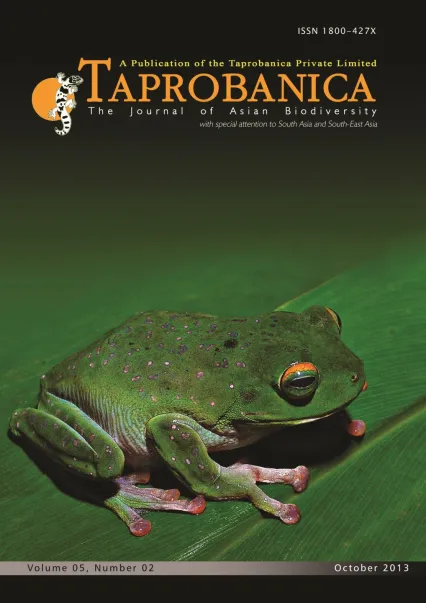

v5i2.117
Volume 5 | Number 2 | November 2013
Short Note
ISSN: 1800-427X (print)
eISSN: 1800-427X (online)
DOI:10.47605/tapro.v5i2.117
Submitted date: 22 November 2012
Accepted date: 26 August 2013
Published date: 25 December 2013
Pp. 154–155.
On usage of perches by the Spotted Owlet
A.M.S. Ali* & R. Santhanakrishnan
*Corresponding author. E-mail: amsamsoor@yahoo.co.in
The Spotted Owlet Athene brama (Temminck, 1821), although a common, native species in India, is poorly studied. The present study examines the use of various perch substrates and perching heights by Spotted Owlets between 2007 and 2009 in Madurai District (9°30’N, 77°28’E), Southern India. Four habitats; rural, urban, riverbanks, and agricultural lands (transects of 4500m length and 50m width were used for each habitat) were selected and surveyed between 18:00 and 22:00 h for usage of perches. In each survey, perching substrate and perching height used (height on which Spotted Owlet perched) while foraging were recorded following Bell & Ford (1990). The perching heights were grouped into various class intervals: 0–2m, >2–4m, >4–6m, >6–8m, >8–10m, >10m. The chi-square test was applied for testing percent usage of perch substrates and perching heights between habitats.
Section Editor: Varadharajan Gokula
eISSN: 1800-427X (online)
DOI:10.47605/tapro.v5i2.117
Submitted date: 22 November 2012
Accepted date: 26 August 2013
Published date: 25 December 2013
Pp. 154–155.
On usage of perches by the Spotted Owlet
A.M.S. Ali* & R. Santhanakrishnan
*Corresponding author. E-mail: amsamsoor@yahoo.co.in
The Spotted Owlet Athene brama (Temminck, 1821), although a common, native species in India, is poorly studied. The present study examines the use of various perch substrates and perching heights by Spotted Owlets between 2007 and 2009 in Madurai District (9°30’N, 77°28’E), Southern India. Four habitats; rural, urban, riverbanks, and agricultural lands (transects of 4500m length and 50m width were used for each habitat) were selected and surveyed between 18:00 and 22:00 h for usage of perches. In each survey, perching substrate and perching height used (height on which Spotted Owlet perched) while foraging were recorded following Bell & Ford (1990). The perching heights were grouped into various class intervals: 0–2m, >2–4m, >4–6m, >6–8m, >8–10m, >10m. The chi-square test was applied for testing percent usage of perch substrates and perching heights between habitats.
Section Editor: Varadharajan Gokula
- List of Articles & Contents





